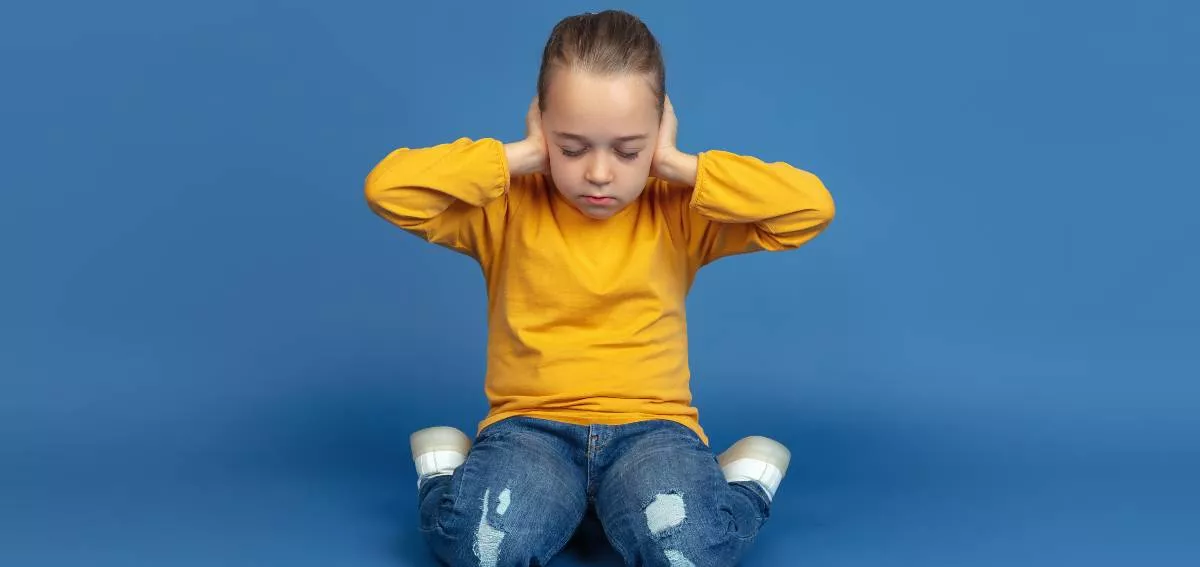Autism Spectrum Disorder (ASD) is a neurodevelopmental disorder characterised by deficits in social communication and interaction, along with repetitive, restrictive patterns in behavior, interests and activities. The term “spectrum” helps understand the concept of autism better, as the intensity, symptoms and behaviours vary considerably in each person.
Autism Spectrum Disorder (ASD) is a neurodevelopmental disorder characterised by deficits in social communication and interaction, along with repetitive, restrictive patterns in behavior, interests and activities. The term “spectrum” helps understand the concept of autism better, as the intensity, symptoms and behaviours vary considerably in each person.
Children (adults as well) with autism can have varied capabilities ranging from cognitive and language impairments (nonverbal and asocial) to superior cognitive and language abilities (those who pursue studies and career). In addition to learning and cognitive impairment, autism can also lead to sensory and feeding problems.
Early Signs Of Autism In BabiesSeek medical advice if you notice that your baby does not:
- Make eye contact (does not look at you when being fed)
- Smile when smiled at
- Respond when called by name
- Respond to a familiar voice
- Initiate or respond to cuddling
- Make any noise to get your attention
- Imitate your movements and facial expressions
- Reach out and ask to be picked up
- Play with other people or show interest and enjoyment
- Wave goodbye, point finger or use gestures to communicate
- Follow gestures when you point things
- Follow objects visually
- Ask for help/ requirements
Seek immediate evaluation by your child’s pediatrician if your baby does shows delays in achieving the following developmental milestones
- By 6 months: No big smiles/ joyful expressions
- By 9 months: No sharing of sounds/ smiles/ other facial expressions
- By 12 months: Lack of response when called by name
- By 12 months: No babbling or “baby talk”
- By 12 months: No gestures like pointing, reaching or waving
- By 16 months: No spoken words
- By 24 months: No meaningful, non-repeating two-word phrases
Signs Of Autism In Older Children
As children get older many warning signs and symptoms emerge, but they are usually related to impaired social skills, speech and language incapability, non-verbal communication difficulties and rigid behavior.
Signs Of Social Difficulties
- Disinterested / unaware of other people or what’s going on around them
- Prefers not to be touched, held or cuddled
- Doesn’t connect with others, play or make friends
- Doesn’t play “pretend” games/ play in groups/ imitate others/ use toys creatively
- Trouble understanding or expressing feelings
- Won’t listen when talked to
- Doesn’t share interests/ achievements/ toys with others
- Live in their own world, aloof and detached
Signs Of Speech And Language Difficulties
- Speaks in an abnormal tone and/or with an odd rhythm or pitch
- Starts talking late
- Keeps repeating the same words or phrases
- Incorrect use of language
- Difficulty in communicating needs
- Doesn’t understand, statements, questions and directions
- Takes what is said too literally (misses the humour or sarcasm in it)
- Responds to a question by repeating it
- Refers to themselves as a third person
Signs Of Nonverbal Communication Difficulties
- Avoids eye contact
- Unmatched facial expressions
- Does not respond to other’s facial expressions, tone of voice, and gestures Acts robotic: very few gestures
- Unusual reaction to sights, smells, textures, and sounds; extra sensitive to
- loud noises
- Abnormal posture, clumsiness or ways of walking
- Difficulties in social interaction
Signs Of Inflexibility
- Follows a rigid routine
- Difficulty in adapting to any changes in schedule or environment
- Abnormal attachment to toys or even odd objects like keys, light switches etc.
- Lines up/arranges things in a certain order
- Narrow topic of interest, often involving numbers or symbols (like memorising and reciting facts about maps etc.)
- Watching moving objects or focusing on one specific part of an object
- Repeats the same actions or movements over and over again like rocking or
- twirling (self-stimulatory behavior, or "stimming")
Self-stimulatory behaviours
- Hand flapping
- Moving fingers in front of the eyes
- Watching moving objects
- Flicking light switches on and off
- Repeating words or noises
- Snapping fingers
- Tapping ears
- Scratching
- Lining up toys
- Spinning objects
- Wheel spinning
- Rocking back and forth
- Spinning in a circle
- Finger flicking
- Head banging
- Staring at lights





